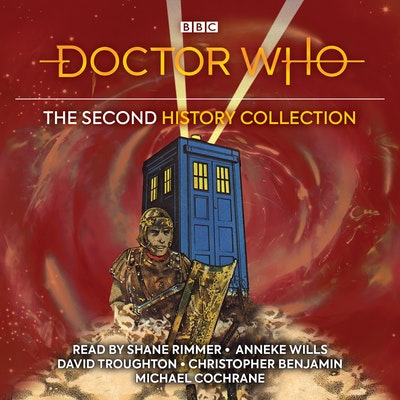[]
Play sample
- Published: 17 September 2020
- ISBN: 9781529128109
- Imprint: BBC DL
- Format: Audio Download
- Length: 21 hr 30 min
- Narrators: Shane Rimmer, Anneke Wills, David Troughton, Christopher Benjamin, Michael Cochrane
- RRP: $32.99
Doctor Who: The Second History Collection
1st, 2nd, 4th, 5th Doctor Novelisations
Formats & editions
Buy from…
- Published: 17 September 2020
- ISBN: 9781529128109
- Imprint: BBC DL
- Format: Audio Download
- Length: 21 hr 30 min
- Narrators: Shane Rimmer, Anneke Wills, David Troughton, Christopher Benjamin, Michael Cochrane
- RRP: $32.99
Slick and polished...immersive productions of much-loved novelisations...long may we enjoy them
Doctor Who Magazine


